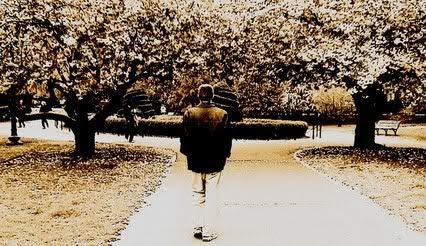This is my "official Week one." Though I've been here for a fortnight (2 weeks for those back home), much of the time has been spent in learning my way around, locating a flatshare situation, getting a pay-as-you-go phone, and starting my internship. All the typical "I just moved to a new country" sort of things. This was the week I actually started work on the internship, so that is why I'm calling it my first official week one and what I'm starting the clock from. This is my blog, my Julian calendar, I can choose whatever frame of reference I want! In the words of Mel Brooks, "It's good to be the King!"
Things are well here in Belfast. I'm busily engaged in the observation part of my research and am finding things to be more nuanced than ever I had thought. It's strange...the Northern Irish are known for being guarded, but being an American seems to give an immunity making them want to open up and (as one lass I was talking with said) "convert me to their way of thinking." Maybe the American accent is as entrancing for them as the Irish/British are for us. Or maybe being an outsider from a perceived neutral country in their conflict, they feel safer. I can't yet say. What I can say though is that being here on the ground is being of infinitely more use than any amount of literature review and reading of Northern Irish History/culture...there are nuances and significant elements which would be virtually lost by an individual who was not immersed in the day to day.
One nuance is the entrenched suspicion with which the Protestant and Catholics see one another. Much of this has been a divided society in which there was little interaction beyond some financial/business transactions. Religion, social, education, all has been separated. Conflict experts have consistently pointed out the segragated aspects as having continued the tensions for so long. While employment and to an extent social interaction isnt as segregated as once it was, integration in relation to education has been heavily resisted. State sponsored schools continue to remain highly Protestant and Parochial schools continue to remain mostly Catholic, with some fundamentalist sects having parochial schools of their own (such as the Free Presbyterians), though some innovative experimental schools have been promoted over the last 20 years with some success. So many perceptions around identity, it's shocking at times to even contemplate the level of alienation and internalized fear that exists in this society. One gentleman I have gotten friendly with who was raised Catholic shared with me that he has a distrust of the Protestants he works with.
Another nuance which historians like Tim Pat Coogan have broached (Coogan being a former reporter from the Republic [or "down south" as they call it] would have a deeper understanding of it) is the ambivalent nature of North-South relations within the Nationalist communities. Despite the nationalists in the north wanting to be unified with the south, there are tensions where the south really doesnt even look on the north as brothers, but with an element of 'other.' 80 years have passed since partition, but those scant years have been enough to really damage relations between the two nationalist sects. What they say isn't always what they mean...Northern Nationalists often look on their southern counterparts as not being true nationalists, and failing to come to their aid on many occasions. The economics of reunification alone would be disastrous to unionist and nationalist alike, just merely talking about healthcare alone (the North uses the British single payer system, while the Republic of ireland has a state subsidized insurance system) where Northern Irish would lose pretty much free access to GPs, surgeons, and pharmaceuticals. Right now the Republic is struggling, and there are some southern Irish who have started emigrating north looking for jobs. What a reversal this was from 20 yearsago when "the celtic tiger" was in full swing! Most Northern Irish I have talked to (from both communities) discount the actual cultural differences between the North and South, but being from outside I see them even more pronounced.
To me it's hardly a surprise...Ulster has always been unique and individualized, with a history quite different than that of the south. From 700 BC on Armagh was the seat of ecclesiastical power on the island of Ireland, as well as politically under the O'Neill clan kings. While the North did face extensive invasions by Norse and Danish invaders, the North resisted fiercely leaving them less subjugated than in the south. This unique identity expanded even further first by the injection of the Presbyterian planters and then by rapid industrialization in the 19th and 20th centuries. Even the regional accents are quite thicker than in the rest of the island (with the exception of the West Cork, and noone seems to know where the hell THAT came from). For an example of the regional nature of accents in this small area, see the video below.
So much to learn and so little time in which to do it! Every thing I see is still novel and exciting. I'm not sure if the chocolate actually IS better here or whether it just is the psychological suggestion of it being Irish chocolate, but everything has been having that effect. I really like it here, and absolutely love Northern Ireland!
.jpg)





Its cool that you've done so much research that everything you're experiencing is something that you can take and analyze in its historical and cultural context. I bet it must be satisfying to finally be there. :) Looking forward to reading more!
ReplyDelete